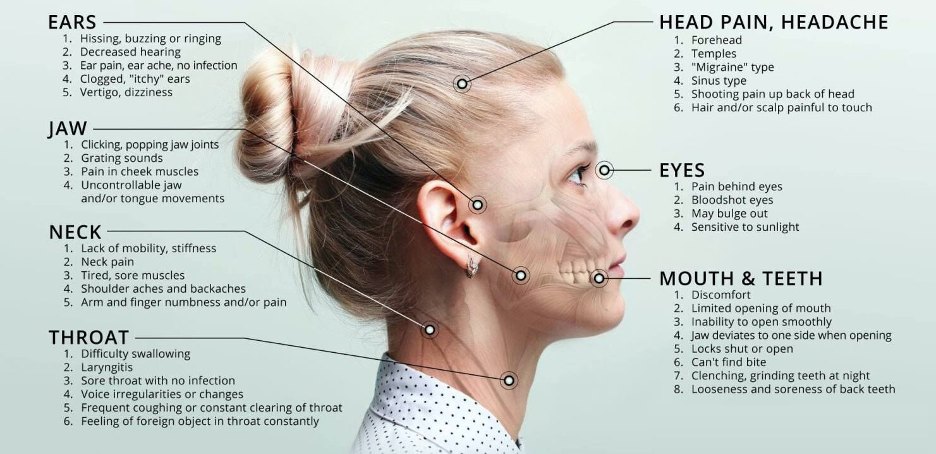Sydenham Family Dental | Biological & Comprehensive Dentistry
YOUR BEST DENTAL EXPERIENCE
Myofunctional Therapy
What is Myofunctional Therapy?
BREATHING. A fundamental act of life that we all take for granted. However, unless it is performed correctly it can have detrimental health effects that can not only have a major impact on the quality of our lives but also on how long we live. We were given a nose for a reason. Proper breathing requires that we use it correctly to get the maximum benefit forum the air we take in. However, for many reasons many people have developed the habit of breathing through their mouth, with devastating developmental and health effects. The illustration below, put out by the Breathe Institute illustrates the many detrimental effects of mouth breathing.

Some of these effects can create crooked teeth and jaws are not often attributed to having dysfunctional breathing as a cause. All too often parents and patients attribute these problems to ‘genetics’. However, it is only in the last few generations are we seeing these issues and indeed MOST children today have some level of crooked teeth and under developed jaws. Form follows function. It is now known that the primary causes of these disorders are created by environmental and dysfunctional breathing and swallowing habits instilled at birth and some would argue from growth and development in the womb. We now know that unless there are efforts to correct the underlying functional causes are addressed and corrected the traditional therapies, such as braces, are doomed to fail, in the orthodontic world called ‘relapse’. But Myofunctional disorders have much greater impacts on our health as illustrated below.

The good news is that many of these disorders can be addressed through an evolving field called MYOFUNCTIONAL Therapy. Let’s unpack that fancy word. MYO means muscles. Specifically, the muscles that allows us to breathe, chew and swallow. Functional means function. And therapy, which you know means the use of an intervention to improve function or form. So Myofunctional therapy is a form of therapy that is intended to optimize the function of the muscles of breathing, chewing and swallowing. The first step in determining if myofunctional therapy can help is to determine if there is a problem. This requires special training to be able to identify the signs and symptoms of a disorder. Probably the most common question we get from parents is “why are my child’s teeth coming in crooked?”. Or as adults, “I had orthodontics twice yet my teeth keep shifting back and are still crooked”. And one that we are seeing far too often now, “I can’t tolerate the CPAP (mask and snorkel) to treat my sleep apnea and they now say I should try a piece of plastic to put in my mouth while I sleep”. These issues have the same underlying fundamental cause: dysfunctional breathing, chewing and swallowing. Our team is specially trained to recognize the signs and symptoms of these disorders and are identified and discussed at our new patient intake exam. This is one of many reasons our exam is more comprehensive than what you are used to. What you choose to do with that information is up to you but often dental treatments can have detrimental effects on these functional patterns.
Identification of these disorders is only part of the solution. Fortunately, we now have a specifically trained Myofunctional Therapist on our team, Alex. She has been trained by one of the best breathing experts, Patrick McKeon (see our resource section on some excellent books by him), and by the most experienced Myofunctional trainers at the Academy of Orofacial Myofunctional Therapy (AOMTinfo.org). She is uniquely qualified to assess the signs and symptoms of a breathing, chewing and swallowing disorders and provide therapies in the form of exercises and tools to help optimize your breathing and function, whether an adult with sleep apnea or a small child with a tongue tie.
Please feel free to contact us for more information and check out our Facebook page at https://www.facebook.com/clintondentistry/ for more information Alex has posted. Our resources page on our website also has some excellent articles and books for information
